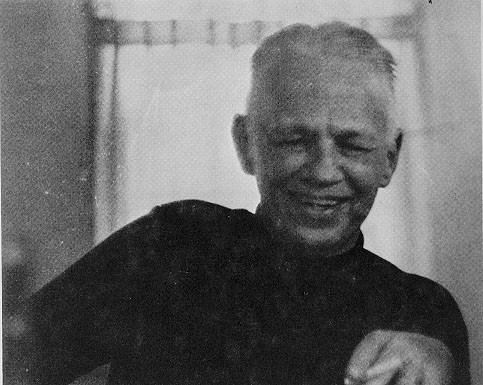
In a previous article, the European Conservative introduced to its readers the thought of this great American political philosopher. Let us again devote some lines to the Oklahoma genius.
When analysing freedom of speech, he recalls that the contemporary doctrine concerning that concept entails that in a good (progressive, of course) society all questions must be treated as open questions – the reader could refer to “Willmoore Kendall Contra Mundum” for a wider explanation of our author’s assert.
He finely detects a first problem: What about the question whether all questions are open questions? Should that question be an open question, too, or is there just a single exception in the contemporary progressive doctrine to deserve the quality of good when treating freedom of speech? A clear contradiction arises from the obligation to treat all questions as open.
On the other hand, treating all questions as open is equivalent to a lack of existence of any orthodoxy whatsoever, be that religious, political, social or economic.
At least, it is equivalent to obliging everyone in that society to act in their public capacity as if there were no orthodoxy.
Consequently, citizens of such a society are free to challenge any truth; in fact, any so-called truth, as there is no truth, or at least no public truth in that kind of society. Truth would be no more than a received opinion.
For example, citizens would be free to challenge that the family ought to be protected; or that property is a natural right; or that blaspheming should be punished; or that it is in the interest of the community to safeguard borders.
Even more, no authority should defend the protection of the family, the quality of property as a natural right, the necessary punishment of blasphemy or the safeguard of borders, as that would impair the rights of citizens to challenge such institutions.
In 1960, Kendall anticipated the term “diversity”, as a desired (not by him, but by self-named progressives) extension of different opinions, valuations, Weltanschauungen, or points of view on a wide variety of matters.
And not only should there be in such good progressive open societies a wide variety of matters where there reigns diversity and subsequent lack of agreement; but also the numerous points of view should, in their turn, be represented in the forum of public discussion. The opposite would be considered poor, uninteresting, non-democratic, and repressing.
Universal agreement is thus condemned, as public orthodoxy is condemned. Perhaps there can be some universal agreement on trivial matters, such as the side of the road on which we drive. But beyond that, it would mean that human spontaneity is on the verge of being killed. Whereas human spontaneity causes conflict, another element much beloved by the progressives and their more valiant representatives, the Marxists.
Conflict is the Marxist way, and the progressive way, to discover truth. Two opposing views are better than just one view, regardless of the quality of the latter, and regardless whether agreement is at hand to avoid conflict, such agreement being quite undesired; three opposing views would be better than two, and so on and so forth.
In fact, nobody should be excluded from this conflict, search and contest, no matter how ridiculous his pretentions. Wrong? Nobody is wrong, nothing is wrong, because nothing is right, perhaps just tentatively right. It all depends on the existence – and vigour – of opposing views. Perhaps some viewers consider something wrong; but that is a merely subjective consideration, unfit to qualify anyone or anything as wrong.
Moreover, truth is never achieved; it is always an ongoing process, enabled by the dynamic development of conflict. No matter whether innumerable truths, in all aspects of life, are achieved results that require no further development: the proportion of a diameter to the circle, the immortality of soul, the formal laws of logic, the speed of earth’s rotation, etc.
Kendall compares this permanently ongoing and conflicting process in a progressive open society to an expanding imperialism, “always discontented with its conquests to date”. What today is considered tentatively right will be thrown to the bin tomorrow, so that the progressive expanding imperialist can pursue with his development of conflict.
Naturally, this amounts to an absolute freedom of thought, unshared by the conservative scholar. But such absolute freedom of thought deems conservative logic to be an interference in the absolutism of his claim for the good open and progressive society.



 Subscribe
Subscribe